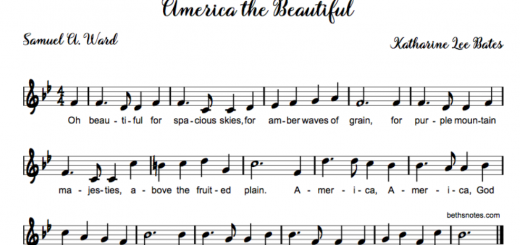Hit the Road Jack by Ray Charles Lyrics Meaning – The Anthemic Goodbye and Its Cultural Resonance
Lyrics
No more, no more, no more, no more
Hit the road Jack and don’t you come back
No more
What’d you say?
Hit the road Jack and don’t you come back
No more, no more, no more, no more
Hit the road Jack and don’t you come back
No more
Oh woman, oh woman, don’t treat me so mean
You’re the meanest old woman that I’ve ever seen
I guess if you say so
I’ll have to pack my things and go (that’s right)
Hit the road Jack and don’t you come back
No more, no more, no more, no more
Hit the road Jack and don’t you come back
No more
What’d you say?
Hit the road Jack and don’t you come back
No more, no more, no more, no more
Hit the road Jack and don’t you come back
No more
Now baby, listen baby, don’t you treat me this way
‘Cause I’ll be back on my feet some day
Don’t care if you do, ’cause it’s understood
You ain’t got no money, you just ain’t no good
Well, I guess if you say so
I’ll have to pack my things and go (that’s right)
Hit the road Jack and don’t you come back
No more, no more, no more, no more
Hit the road Jack and don’t you come back
No more
What’d you say?
Hit the road Jack and don’t you come back
No more, no more, no more, no more
Hit the road Jack and don’t you come back
No more
Well (don’t you come back no more)
Uh, what you say? (don’t you come back no more)
I didn’t understand you (don’t you come back no more)
You can’t mean that (don’t you come back no more)
Oh now, baby, please (don’t you come back no more)
What you tryin’ to do to me? (don’t you come back no more)
Like a time-worn record with grooves that resonate through the ages, Ray Charles’s ‘Hit the Road Jack’ sustains a cultural impact that stretches far beyond its simple yet catchy melody. A song embodying the empowering act of bidding farewell, it blurs the lines between the personal and the universal, wrapped up in Charles’s soulful delivery.
But what lies beneath the surface of this seemingly playful tune? Through an exploration of themes, context, and lyrical depth, we’ll discover the multilayered elements that make ‘Hit the Road Jack’ much more than just an earworm.
A Tune Wrapped in Confidence: Empowerment Through Music
On the face of it, ‘Hit the Road Jack’ is a song about definitive separation. A narrative of dismissal cloaked in the cloak of freedom and self-assured disposition. It’s a theme that resonates with listeners, often becoming a personal anthem for those facing the end of relationships or other moments of farewell.
Ray Charles’s brash, powerful vocals, accompanied by the resounding, rhythmic pattern of the piano, set an indomitable tone that doesn’t just suggest confidence—it demands it. This isn’t just a break-up song; it’s a declaration of independence, a musical manifesto for the undeterred spirit.
Beyond the Call-and-Response: A Dialogue of Determination
‘Hit the Road Jack’ employs the classic call-and-response structure, creating a dynamic musical conversation. The push and pull of the vocals reflect a dispute where the protagonist, despite adversity, is forced to accept the finality of the verdict. Yet there’s a playful undertone, perhaps a coping mechanism to soften the sting of rejection.
This stylistic choice isn’t accidental. It has roots in African-American gospel and work songs, reinforcing the notion of community and shared experience through music. Here, Charles taps into a broader dialogue, one that speaks of personal resilience and echoes a collective understanding of struggle and the resultant strength.
Unpacking the Hidden Meanings of ‘No More’
The relentless refrain ‘no more’ cuts like a knife, driving home the point of no return. It’s a phrase that encapsulates rejection and end of compromise. But beyond a mere mantra of dismissal, it reads as a narrative of empowerment, where stating ‘no more’ becomes an act of setting boundaries.
In a time when societal norms largely governed the terms of relationships, this outcry was borderline subversive. It served as a catalyst for listeners to echo this sentiment in their own lives, to stand their ground and express their opposition to being mistreated or undervalued.
Memorable Lines: The Echoes of Defiant Musical Poetry
The line ‘Oh woman, oh woman, don’t treat me so mean’ juxtaposes vulnerability with the inevitable rise to self-respect. It outlines a universal human complexity, balancing between the need to be loved and the necessity of respecting oneself. Charles’s invitation to reflection by asking ‘What’d you say?’ is a clever attempt to rope the listener into this emotional tug-of-war.
Furthermore, the commitment to leaving ‘But I’ll be back on my feet some day’ underlines a belief in personal resilience and future success despite present hardships. Such lines embed themselves in the psyche, providing fortitude and hope to rise above transient troubles.
The Cultural Echo Chamber of a Timeless Farewell Anthem
The influence of ‘Hit the Road Jack’ stretches across decades and genres, its simplicity making it a vessel for a plethora of interpretations and adaptations. Its lasting appeal can be attributed to its direct, universal language of departure, which has made it an enduring fixture at farewell parties, in movies, and even as a figure of speech.
Moreover, the song has transcended its original context to become a symbolic tool for various forms of social and political rebuke and empowerment. In essence, ‘Hit the Road Jack’ isn’t merely a song—it’s entered the collective consciousness as a symbol of rebirth and a soundtrack for those ready to change the status quo.








